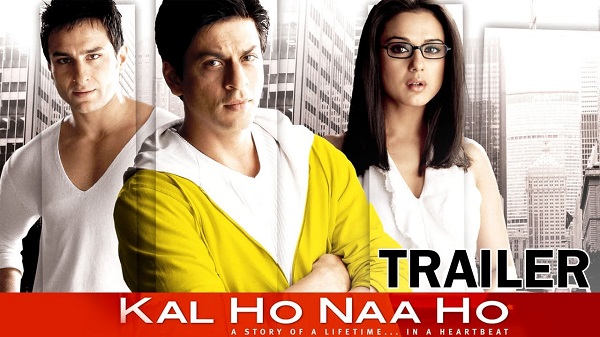Introduction:
Bollywood cinema has always been celebrated for its ability to capture the essence of human emotions, and “Kal Ho Naa Ho” stands as a shining example of this prowess. Released in 2003, directed by Nikkhil Advani and produced by Yash Johar, this film weaves a heartwarming tale that transcends borders and resonates with audiences globally. With its unforgettable characters, soul-stirring music, and a narrative that seamlessly blends love, friendship, and sacrifice, “Kal Ho Naa Ho” remains a timeless gem in the realm of Indian cinema.
Love that Transcends Time and Circumstances:
At the heart of “Kal Ho Naa Ho” is a poignant love story that unfolds between Aman Mathur (Shah Rukh Khan) and Naina Catherine Kapur (Preity Zinta). Aman, with his infectious zest for life, enters Naina’s world, bringing with him a warmth that thaws the icy walls around her heart. The film beautifully explores the transformative power of love, demonstrating how it can heal wounds and breathe life into seemingly desolate existences.
However, the love story is not devoid of challenges. Aman, aware of a life-threatening illness, chooses to conceal his condition from Naina to spare her the pain of an inevitable loss. This decision adds a layer of poignancy to their relationship, making the audience question the lengths one would go to shield a loved one from sorrow.
Friendship as the Anchor:
The narrative also delves into the dynamics of friendship through the characters of Aman, Rohit (Saif Ali Khan), and Naina. Aman, the vivacious outsider, becomes the catalyst for bringing together Naina, the introverted cynic, and Rohit, the affable friend harboring a silent affection for Naina. The trio forms a bond that exemplifies the transformative power of genuine friendship.
Rohit’s unrequited love for Naina serves as a subplot that adds depth to the film. His sacrifice for the happiness of his friends is a testament to the selflessness that true friendship entails. The film beautifully captures the nuances of platonic relationships, showing how friends can be the anchor that helps individuals navigate the stormy seas of life.
Sacrifice and Selflessness:
As the plot unfolds, Aman’s sacrifice becomes increasingly evident. His decision to conceal his terminal illness from Naina is an act of profound selflessness. Aman’s character radiates positivity and joy, concealing the pain within. His sacrifice is not just about facing mortality; it’s about ensuring that the ones he loves can continue their journey without the burden of grief.
The film culminates in an emotionally charged climax that brings to the forefront the themes of love, friendship, and sacrifice. Aman’s final moments serve as a poignant reminder that true love goes beyond the physical realm, echoing the sentiment that love is immortal.
Musical Brilliance:
No discussion of “Kal Ho Naa Ho” is complete without acknowledging the musical brilliance that permeates the film. Composed by Shankar-Ehsaan-Loy, the soundtrack features soul-stirring melodies like “Kal Ho Naa Ho” and “Maahi Ve.” These songs not only complement the narrative but also contribute to the emotional depth of the film, creating an enduring connection with the audience.
Conclusion:
“Kal Ho Naa Ho” is more than just a cinematic experience; it is a journey through the intricacies of the human heart. Its portrayal of love, friendship, and sacrifice resonates universally, making it a classic that transcends cultural boundaries. The film’s ability to evoke laughter, tears, and introspection showcases the power of storytelling and cements its place as a timeless masterpiece in the annals of Bollywood cinema. In the end, “Kal Ho Naa Ho” teaches us that even in the face of inevitable farewells, the echoes of love and friendship continue to reverberate, leaving an indelible mark on the tapestry of our lives.
